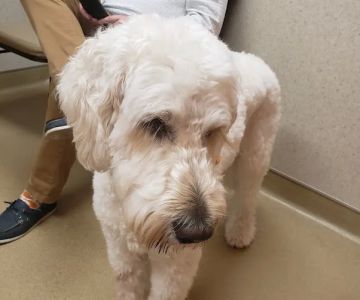Can I Be a Veterinarian in the Air Force?
Many people are drawn to the idea of working as a veterinarian, particularly those with a deep love for animals. However, what if you could combine your passion for animal care with serving your country? A career as a veterinarian in the Air Force is an exciting and rewarding path for those who are interested in both veterinary medicine and military service. In this article, we will explore the steps to becoming a veterinarian in the Air Force, the role of military veterinarians, and the unique aspects of this career that might interest you.
1. The Role of Veterinarians in the Air Force
Veterinarians in the Air Force are responsible for ensuring the health and well-being of the military's animals, including working dogs, horses, and other animals used in military operations. Additionally, Air Force veterinarians may also be involved in preventive medicine, food safety inspections, and the overall health management of animals within the military. They play a critical role in supporting the readiness of military operations by keeping these animals healthy and ready for duty.
Aside from caring for military working animals, Air Force veterinarians may be involved in public health initiatives. They are trained to oversee food safety programs, monitor zoonotic diseases (those that can be transferred from animals to humans), and help maintain health standards for military personnel and their families. They also assist with the care of animals in disaster relief situations, working alongside other emergency response teams.
2. Qualifications Required to Become a Veterinarian in the Air Force
To become a veterinarian in the Air Force, you must meet certain qualifications, including education and training requirements. Here is an outline of what you need to do:
- Complete Veterinary School: Like any veterinarian, you must complete a Doctor of Veterinary Medicine (DVM) degree from an accredited veterinary school. The process generally takes 4 years, following an undergraduate degree.
- Pass Licensing Requirements: You will need to pass the North American Veterinary Licensing Exam (NAVLE) to become a licensed veterinarian. This is necessary for practicing as a veterinarian, whether in civilian life or the military.
- Join the Air Force: Once licensed, you can apply to join the Air Force as an officer. There are specific officer training programs for veterinarians that prepare them for service in the Air Force. Additionally, you may need to meet physical fitness standards and undergo medical evaluations to ensure you are fit for duty.
- Complete the Veterinary Corps Training: Upon acceptance, you will undergo further training to prepare you for military service. This training focuses on military protocols, veterinary responsibilities in the Air Force, and specialized areas of veterinary care in the military setting.
3. Benefits of Being a Veterinarian in the Air Force
Choosing a career as a veterinarian in the Air Force offers several unique benefits that are not typically found in civilian veterinary careers. Some of the key benefits include:
- Job Security: The Air Force provides job stability, including health benefits, retirement plans, and opportunities for continued education and advancement.
- Opportunities for Travel: Air Force veterinarians are stationed at military bases around the world, giving them the chance to travel and experience new cultures while serving their country.
- Access to Advanced Training: The Air Force provides specialized training that can expand your veterinary skills, particularly in fields like military animal care, public health, and emergency management.
- Leadership Experience: As an officer in the Air Force, you will gain valuable leadership experience that can enhance your career and open doors for future opportunities.
4. Challenges of Being a Veterinarian in the Air Force
While there are many benefits to being a veterinarian in the Air Force, there are also challenges that should be considered. These include:
- Frequent Relocation: Air Force personnel are often required to relocate to different bases, which can be challenging for personal life and family planning.
- Stressful Environment: Military life can be stressful, with long hours, high expectations, and the possibility of being deployed to high-pressure environments. Veterinary care in the military may involve responding to urgent situations in combat zones or during natural disasters.
- Limited Control Over Assignments: While there are career advancement opportunities, you may have less control over your assignments compared to a civilian veterinary practice.
5. How to Get Started as a Veterinarian in the Air Force
If you are interested in becoming a veterinarian in the Air Force, the first step is to research the opportunities available and determine the path that is best suited to your goals. Here are some steps you can take to get started:
- Reach Out to a Recruiter: Contact a military recruiter to discuss the requirements and application process for becoming a veterinarian in the Air Force.
- Explore Scholarship Opportunities: The Air Force offers various scholarships and loan repayment programs for veterinary students. These programs can help cover the cost of veterinary school and provide a path to joining the military after graduation.
- Gain Experience: While in veterinary school, consider gaining experience with military-related animal care, such as volunteering or interning with military veterinarians or working with animals in a military setting.
Conclusion: Is Becoming a Veterinarian in the Air Force Right for You?
Becoming a veterinarian in the Air Force is a unique and rewarding career path for those who are passionate about animal care and military service. By meeting the qualifications, understanding the benefits and challenges, and carefully considering your personal goals, you can determine if this career path is right for you. With job stability, travel opportunities, and the chance to serve your country while caring for military animals, the Air Force offers a distinctive experience for veterinarians.
If you are considering a career as a veterinarian in the Air Force, reach out to a recruiter or visit [Hidden Brook Veterinary] for more information on opportunities and services that can help guide your career decisions.











